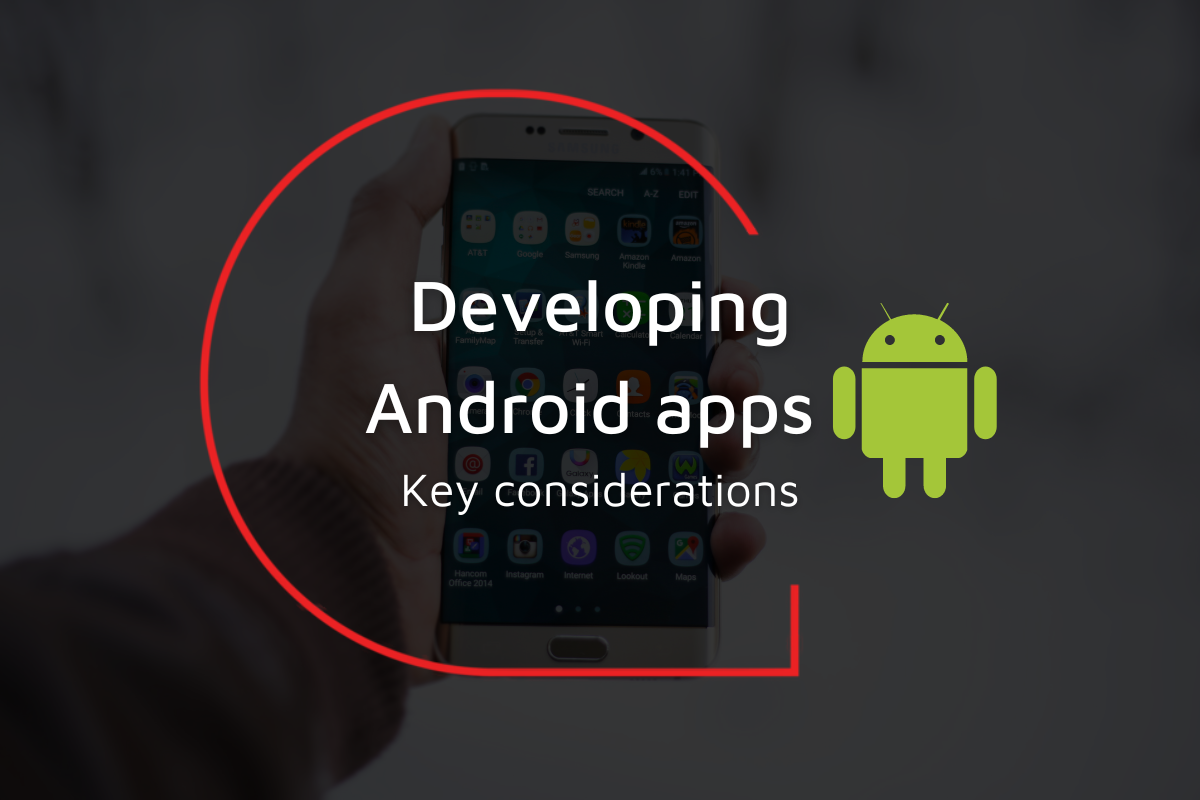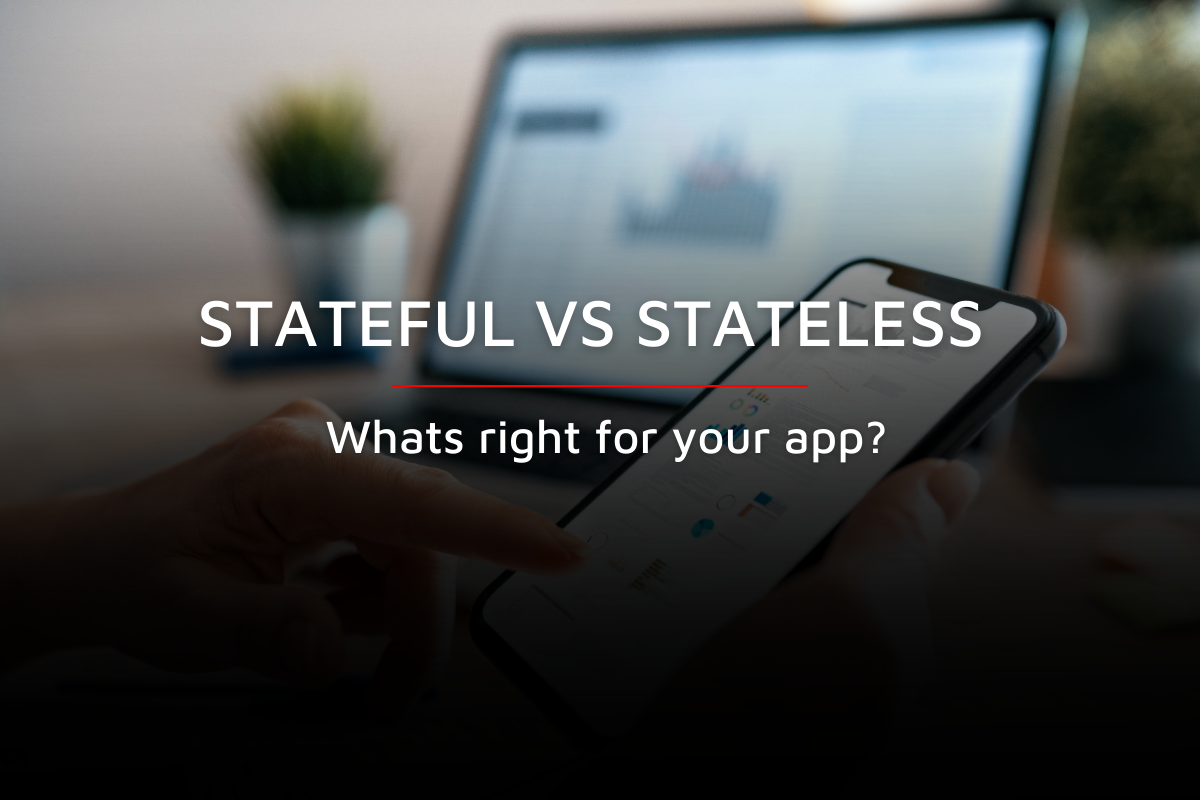Developing Android Apps – key considerations
31 January 2023 | Noor Khan

There are more than 2.7 million Android apps available and standing out from this crowd can be a challenge, especially when working with ever-evolving programming languages, user requirements, and technical creative challenges.
When developing apps for Android, there are a number of different factors to take into consideration before development begins, the simplicity (or complexity) of the design, the navigation and structure, and when the software will be rolled out.
Native vs Cross-platform development
Deciding whether to design specifically and uniquely for Android, or whether to make the app available as a cross-platform release is an important consideration, and it is important that you select the right mobile app development approach.
When it comes to native or cross-platform, there are pros and cons to both options.
Pros of Android native app development
- Native apps tend to have more reliable and stable performance than cross-platform developments
- Security and functionality are enhanced with only one configuration required
- Updating can be done much faster with only one platform to handle
- Customisation can be more advanced by only needing to consider one operating system
Cons of Android native app development
- Potential downloads are restricted to a single platform
- Costs may be increased
- Availability relies on the functionality of the Android platform
Pros of Android Cross-Platform development
- Wider audience reach and download potential
- Faster release scheduling
- One code base for multiple platforms
Cons of Android Cross-Platform development
- Stability and reliability may be reduced
- Updates may require longer to implement
- Multiple versions may need to be developed to handle operational differences or visual specifics on different platforms
Best technologies for Android app development
Android apps are most frequently written in Kotlin, Java, and C++ languages – and although the Android Software Development Kit (SDK) can be utilised, there are a wide variety of options available for developers to create the perfect app.
Popular technologies for Android app development include:
- HTML5: Hypertext Markup Language, the code that is used for web page development can also be used to create mobile apps, and HTML5 allows for more complex functions than earlier HTML versions.
- JavaScript: The frameworks available with JavaScript are highly regarded for creating efficient and effective Android apps. Developers make use of code libraries in order to insert pre-written code into their projects, saving development time and coding costs.
- Java: A highly flexible programming language that is independent of the platform, Java is frequently utilised for multiple operating systems and developing projects that do not require platform-specific features.
- Xamarin: A highly efficient and comprehensive development tool, Xamarin allows for development that does not require OS-specific languages which can make the development smoother for less experienced developers.
- Flutter: Allowing for custom UI elements and the ability to work on cross-platform developments, Flutter has a wide range of features and frameworks to create high-quality apps.
There is a lot of flexibility in coding, designing, and developing android apps, and seeking advice on the core structure is certainly a good place to start.
Ardent mobile app development services
Ardents' highly experienced software engineers have delivered user-friendly, highly engaging and visually stunning mobile apps for a wide variety of clients. Explore some of our mobile app development client success stories:
Highly engaging mobile app packed with gamification features for a research-driven pharma company
If you are looking to build a secure, robust and scalable mobile app for your organisation, we can help. Our mobile app developers, proficient in world-leading technologies can deliver a mobile app solution tailored specifically for you. Get in touch to bring your vision to life with a bespoke mobile app.
Ardent Insights

Are you ready to take the lead in driving digital transformation?
Digital transformation is the process of modernizing and digitating business processes with technology that can offer a plethora of benefits including reducing long-term costs, improving productivity and streamlining processes. Despite the benefits, research by McKinsey & Company has found that around 70% of digital transformation projects fail, largely down to employee resistance. If you are [...]
Read More... from Developing Android Apps – key considerations

Stateful VS Stateless – What’s right for your application?
Protocols and guidelines are at the heart of data engineering and application development, and the data which is sent using network protocols is broadly divided into stateful vs stateless structures – these rules govern how the data has been formatted, how it sent, and how it is received by other devices (such as endpoints, routers, [...]
Read More... from Developing Android Apps – key considerations

Getting data observability done right – Is Monte Carlo the tool for you?
Data observability is all about the ability to understand, diagnose, and manage the health of your data across multiple tools and throughout the entire lifecycle of the data. Ensuring that you have the right operational monitoring and support to provide 24/7 peace of mind is critical to building and growing your company. [...]
Read More... from Developing Android Apps – key considerations






